Keynote Speakers
 |
Yehuda Katz Yehuda Katz is a member of the SproutCore, Ruby on Rails and jQuery Core Teams; during the daytime, he works as a framework architect at Strobe. Yehuda is the co-author of the best-selling jQuery in Action, the upcoming Rails 3 in Action, and is a contributor to Ruby in Practice. He spends most of his time hacking on open source — his main projects, along with others, like Rubinius, Thor, Handlebars and Moneta — or traveling the world doing evangelism work. He blogs at yehudakatz.com and can be found on Twitter as @wycats |
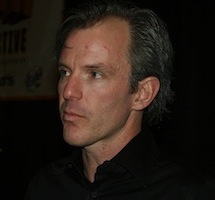 |
Michael Lopp (Rands) Michael Lopp is a Silicon Valley-based engineering manager who builds both people and software. When he’s not worrying about staying relevant, he writes about pens, bridges, people, and werewolves at the popular weblog, Rands in Repose. Michael just wrote a book called “Being Geek” which is a career handbook for geeks and nerds alike. He also wrote a book called “Managing Humans” that explains that while you might be rewarded for what you product, you will only be successful because of your people. Michael surfs and plays hockey in Northern California whenever he can because staying sane is more important than staying busy. |
 |
Drew Conway Drew Conway is a PhD student in political science at New York University. Drew studies terrorism and armed conflict; using tools from mathematics and computer science to gain a deeper understanding of these phenomena. Before entering the PhD program, Drew worked for four years in Washington, DC as a research and analytical consultant for the intelligence and defense communities. During this time Drew developed a passion for understanding national security issues within the framework of social science. While working in the intelligence community Drew was also introduced to the power and properties of social networks, which comprise a large portion of his research. |
 |
Julie Steele Julie Steele is an editor at O’Reilly Media interested in connecting people and ideas. She finds beauty in discovering new ways to understand complex systems, and so enjoys topics related to gathering, storing, analyzing, and visualizing data. She holds a Master’s degree in Political Science (International Relations) from Rutgers University. Julie also works with topics related to Python, PHP and SQL. She lives, eats, reads, codes, and practices yoga in New York City. |
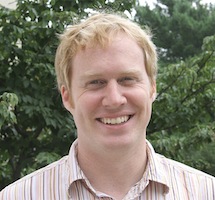 |
Ben Fry Ben Fry spends most of his time thinking about, and making pictures of, patterns and structures found in complex and dynamic sources of data. Drawing on a background in graphic design and computer science, he pursues this fascination as principal of Fathom Information Design in Boston, Massachusetts, where he produces software, printed works, installations, and books that explain and depict topics from the human genome to baseball salaries to the evolution of text documents. He’s also a co-founder of the Processing project, which seeks to ruin the careers of talented designers by tempting them away from their usual tools and into the world of programming and computation. Similarly, the project is designed to turn engineers and computer scientists to less gainful employment as artists and designers. |
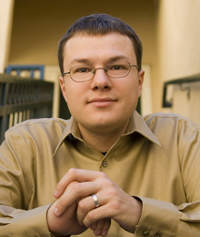 |
Mike Shaver Mike has been working professionally on Internet software since 1993, when he joined what became Ingenia Communications, an Ottawa-based internet consultancy known primarily for its pioneering work on Canada’s SchoolNet. He was fortunate to be working on the web when it was called “gopher”, and on network security when the firewall industry was a mailing list at greatcircle.com. His open source work began with trivial Linux kernel patches and led him to Netscape where in 1998 he was a founding member of the Mozilla project. As a software developer, Mike has worked at virtually all levels of the web software stack, from Linux kernel networking and high-performance cluster filesystems through JavaScript implementations, component systems, and browser interfaces. His code runs on almost half a billion desktop computers, and has powered some of the largest supercomputers in the world. As VP Engineering of Mozilla, he leads the strategy and development of the Firefox browser, meddling in everything from performance tuning to standards strategy. Mike was the recipient of an honorary degree from Seneca College in 2008, and he joined Seneca’s Board of Governors in 2010. He also sits on the board of StopBadware, a non-profit working to eliminate malicious software on the internet. He lives in Toronto with his wife and daughter, and spends his spare time reading, cooking, playing video games, programming, and trying to keep up with a toddler. |
Tutorials
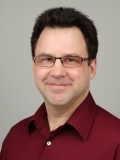 |
Guy Barette Guy Barrette is a freelance Solutions Architect based in Montreal for .NET Expertise. He is the Microsoft Regional Director for the Montreal region and a MVP for ASP.NET. He has been working and developing with Microsoft development tools since the launch of VB 3 in 1994. His focus is helping organizations build better software using Microsoft .NET technologies. He’s been a speaker at developers’ conferences like Microsoft TechDays and DevTeach. Guy leads the Montreal .NET Community and he is the Visual Studio Talk Show Internet podcast co-host. |
 |
Eric Diep Eric Diep is a math dropout, technology entrepreneur, and cofounder of A Thinking Ape. Since 2007, Eric has been at the forefront of technology building consumer products for web and mobile that have reached over 100 million people worldwide. His startup, A Thinking Ape, has recently been highlighted in the New York Times as one of the top grossing developers on the iPhone platform. He has been invited to speak about his views on the consumer web at international events in San Francisco, London, and Amsterdam. Eric is a former student of the University of Waterloo. |
 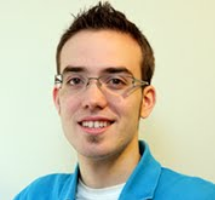 |
Edward Ocampo-Gooding with Daniel Beauchamp Edward Ocampo-Gooding looks forward to making your soul yawn open with effervescent self-realization. A subsequent dose of his experiences in bending cities to his will with open data will be served. THIS IS A TWO PART talk on: 1) Getting the most out of CUSEC 2) How open data will be the milkshake that brings all the boys/girls to the yard. Seriously, you want to come to this talk. Achievements will be unlocked. Edward’s awesome titles include Developer Advocate at Shopify (talk to me about APIs and apps) and lead Organizer at Open Data Ottawa (talk to me about APIs and apps). In 2008, he was CUSEC Director of Presentations. Daniel Beauchamp is a 4th year Software Engineering student at the University of Ottawa, and a co-founder of the Ottawa based startup, Avitu. He is also one of the core members of Open Data Ottawa: a movement to push governments to make public data freely accessible to the public, and to make awesome mashups based on the data. Along with Edward Ocampo-Gooding, he has given several talks on the subject, and has recently helped organize a hackfest spanning 76 cities worldwide. He can be found on twitter as @pushmatrix. |
Corporate Speakers
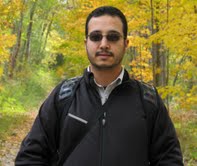 |
Moataz Abdellateef Director, Architecture and Shared Services Residential Moataz has been with Direct Energy since July 2002 and has more than 13 years of IT experience. Now the Director of Architecture and Shared Services Residential, Moataz and his team works to create a three year technology roadmap for our pan-North American Business. Prior to joining Direct Energy, he worked for CIT/Oasis Technology Ltd and CertaPay Inc. Along with a wealth of expertise in Workflow Systems, Archiving Systems, Image Processing, Data Mining, among many others, Moataz also has a Bachelor of Science in Computer and Automatic Control Systems Engineering, from Ain Shams University in Cairo, and is a Sun Certified Enterprise Architect. |
 |
Mark Jorgensen Mark is a graduate from the Ecole Nationale Superieure d’Informatique et de Mathematiques appliquées de Grenoble, in France, where he majored in distributed systems and real-time processing. After working for the French National IT Research Institute (INRIA) where he researched formal verification methods, he went on to join the IT Systems and Architecture team of Arcelor Mittal, a global leader in steel industry, where he led the transition from Mainframe processing to java distributed systems. He then crossed the pond, and spent some time in professional services, working for IBM and specializing in Application Architecture and Web Portals. After the successful launch of Bombardier’s online customer portal, he joined Morgan Stanley where he leads the Customer Tax IT team in Montreal. His team has developed tax withholding and reporting systems processing over 12 Million transactions a day. |
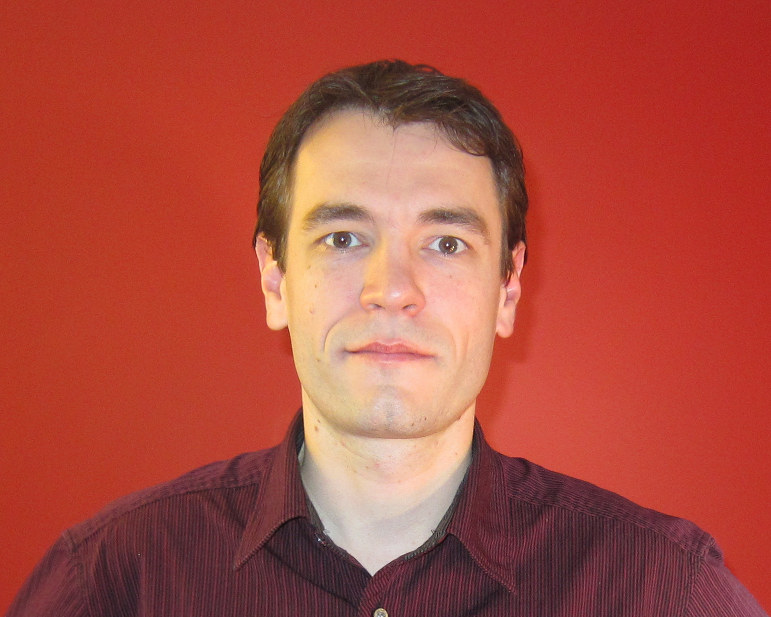 |
Marc-Antoine Ruel Software engineer working on Google Chrome at Google Montréal since 2007, Marc-Antoine used to hack on file system filter drivers. He now works on what he used to call “the user mode stuff”. He implemented printing support in Google Chrome, contributed to the sandbox and is currently working on continuous testing infrastructure and even python web services. Marc-Antoine is a buildbot contributor and you can find him easily on freenode. He holds a degree in Computer Engineering from Université de Sherbrooke. |
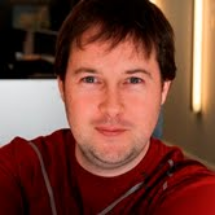 |
Martin Drapeau Martin is co-founder and CEO of Planbox, a project management software-as-a-service startup. Before starting Planbox, Martin held many hats at Synopsys, the world leader in electronic design automation (EDA). First as a developer in Ottawa, he coded algorithms, application programming interfaces (API) and graphical user interfaces (GUI) for many software applications used in manufacturing of integrated circuits (notably for Intel). Later in Belgium as an application engineer, he ran clean room experiments and published many papers. Martin was an intrapreneur at Synopsys; he prototyped a software toolkit to interface with metrology equipment in the clean room. He then settled in Montreal and became product manager to lead development and commercialization of that software application. After a decade of fun and challenges, Martin decided to jump into the adventure of a startup. Martin’s passion is building software applications people love to use. Coding is easy, but getting people to use your application is hard, and getting them to love it is close to impossible. Yet it is his lifelong mission to accomplish just that. Martin holds a bachelor in computer science, and an MBA from the University of Ottawa. |
Academic Speakers
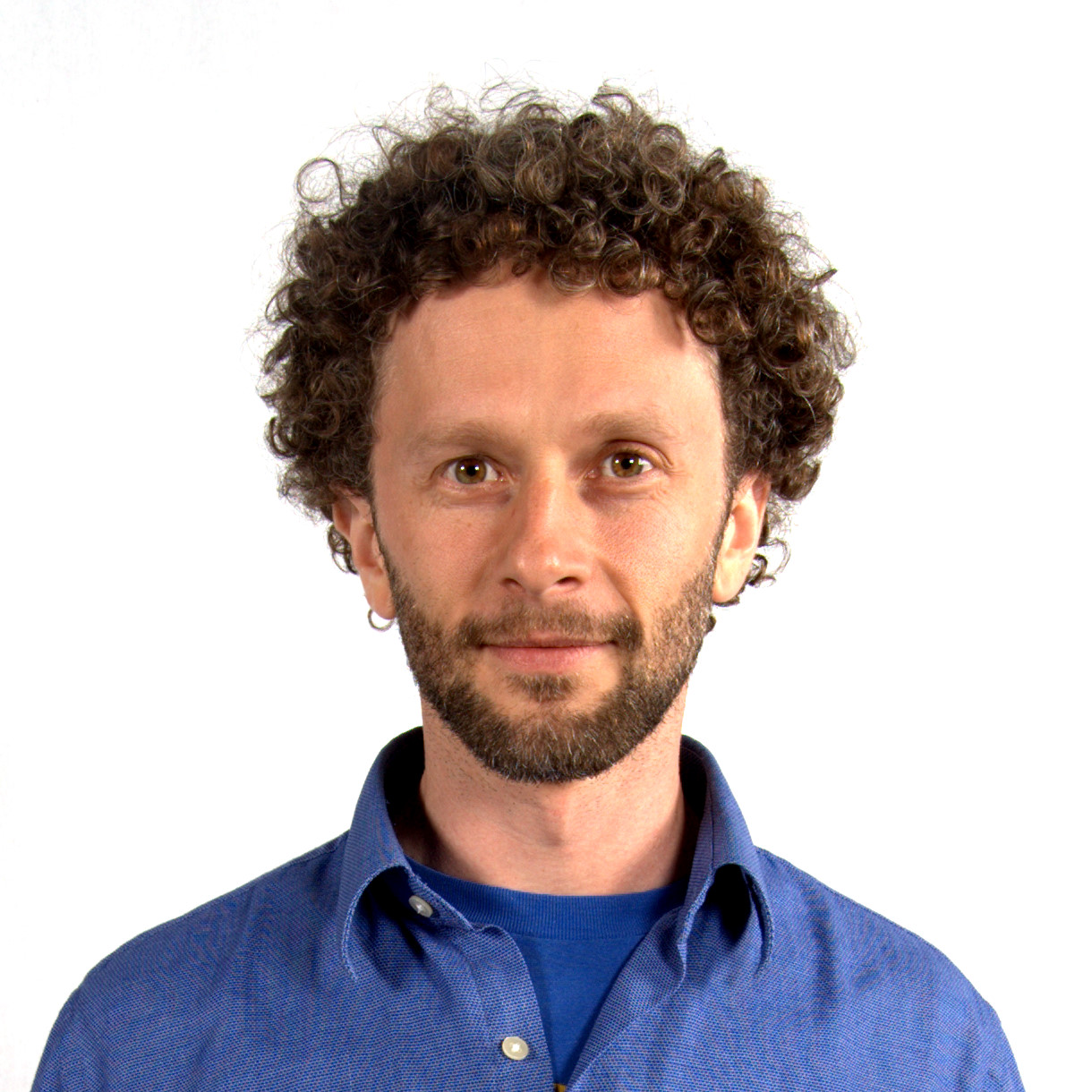 |
Paul Kry Paul Kry is an assistant professor in the School of Computer Science at McGill University. He obtained his Ph.D. in 2005 from the University of British Columbia, and has also spent two years in Grenoble at INRIA as a postdoctoral researcher. His research interests include physically based simulation, character animation, interaction, motion capture, and a variety of related topics. This talk will give an introduction to physically based animation and present some recent developments from the McGill Computer Graphics Lab. Specifically, I will show a method for animating legged locomotion using only modal vibrations computed from the physical properties of an articulated character. I will also present an approach for simulating elastic deformable models at a coarse level while taking into account fine details such as topology and varying material properties. Come to this talk if you would like to gain intuition about fundamental techniques for physics based animation and development of simulation software. |
 |
Derek Ruths My work concerns predicting the behavior of complex, living systems: from cells to societies. Because limited (and often unreliable) data are available for such systems, I’m particularly interested in mathematical and computational techniques that use easy-to-obtain, structural attributes of the systems to predict how they will change over time. This interest has lead me to work in a variety of areas from cancer biology, to Roman history, to the growth of online social networks. |
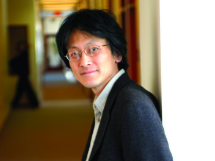 |
Sha Xin Wei Experimental projects with music, dance, time-based visual art, electronic textiles, augmented reality games and theater provide fertile opportunities for applications of machine perception, real-time and parallel computation, digital signal processing, computer graphics, and computational physics. Questions of gesture and agency have profoundly shifted from earlier computational and cognitive models to alternative perspectives of embodiment and materiality. How do our notions of gesture and agency change in the presence of real-time, dynamically varying computational media? Over the past 10 years, the Topological Media Lab’s has built responsive spaces as apparatuses to explore such questions about gesture and agency. I will show some of the lab’s creations, and share some insights learned working with teams of students and researchers from computer science, performing arts, studio arts, and architecture. |




















